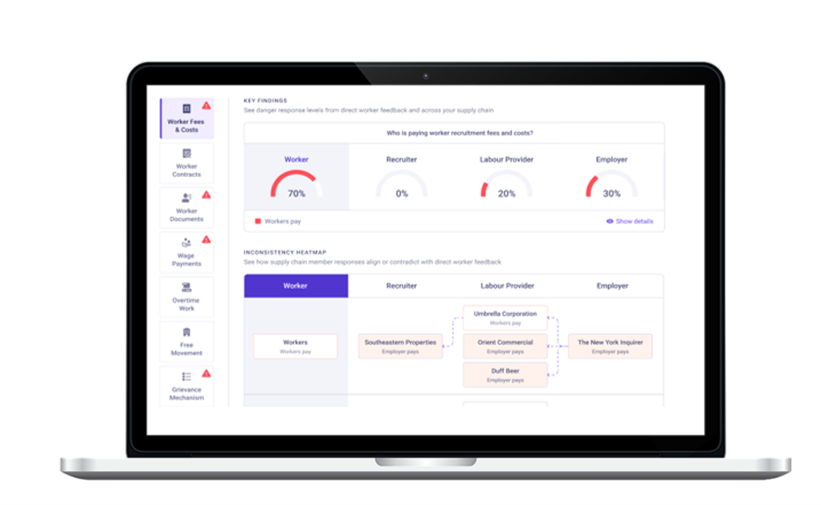KnowTheChain's 2023 Food & Beverages benchmark is here, spotlighting supply chain practices globally
.png)
Last month, KnowTheChain released its 2023Food & Beverages benchmark, comparing corporate practices of 60 of the world’s largest food & beverage companies on preventing and addressing forced labour in their global supply chains. Many of these companies scored low(16/100)on their efforts to address forced labour risks with only half of the companies scoring more than 10/100. Companies are also failing to consider the voice and needs of workers within their supply chain scoring only (9/100) on Worker Voice.
Given the seasonal, precarious, and often isolated nature of work in agriculture, exploitation of workers accounts for the fourth-largest share of forced labour globally. Despite the well documented link between migration, recruitment related debt, and forced labour, companies are not doing enough to address recruitment risk with companies scoring only 13/100 on the theme of recruitment. Only 28% of companies disclosed policies prohibiting worker-paid recruitment fees, and an even smaller percentage (12%) disclosed processes for implementing their policies. This means that of the companies making policy commitments to address forced labour, very few can provide evidence of implementing their policies.
With increasing due diligence requirements being mandated worldwide and a move towards financial penalties for non-compliance, responsible companies need to identify human rights risks impacting workers in their supply chain and take action to address those risks before they escalate.
Our award-winning system, diginexAPPRISE, provides a tool for companies to simply and effectively understand working conditions across their supply chain. To date, companies have used diginexAPPRISE to assess recruitment practices, gender equality and conditions at work with responses received from over 110,000 workers in 24 languages. In some cases, companies have developed customized question sets, enabling them to cost-effectively obtain feedback on the implementation of policies across their supply chain such as policies adopting employer pays principle). Deploying diginexAPPRISE has enabled companies to adopt a worker-centric approach to due diligence, ensuring worker voices are prioritized and heard.
Contact us to learn more about diginexAPPRISE and how engaging workers can help you to improve your understanding of your supply chain.




